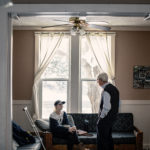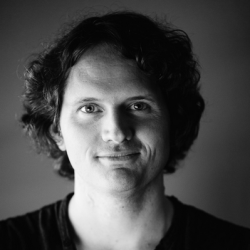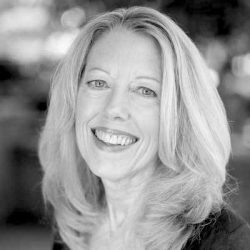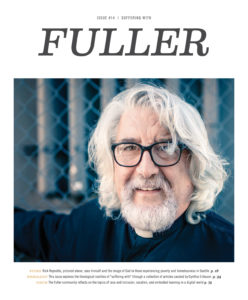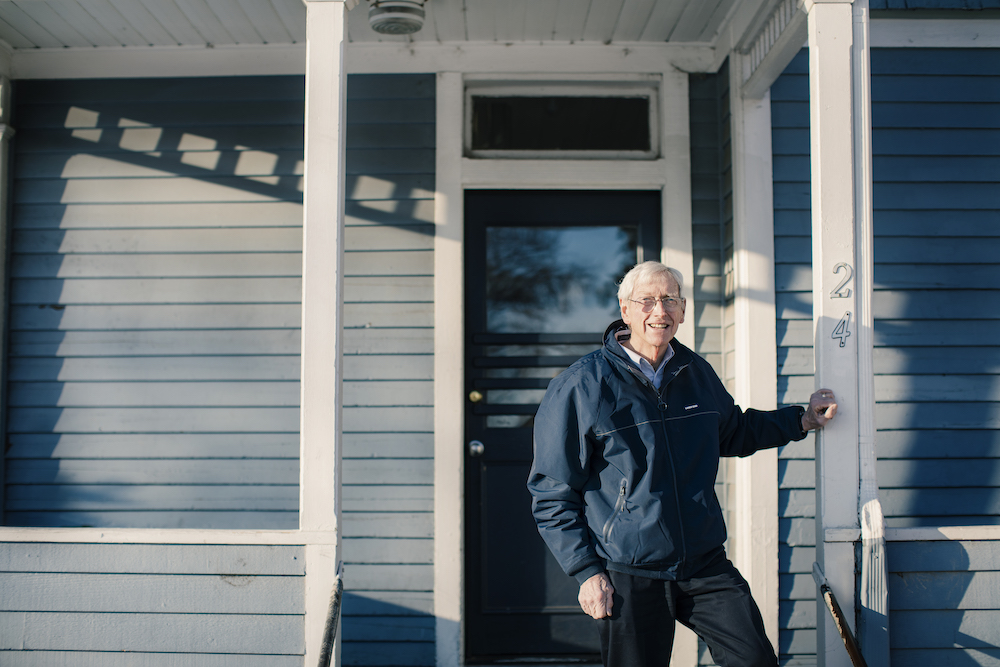
It all started with the runaways, the kids who ended up on the decidedly unglamorous streets of Hollywood in the late sixties. Jim Oraker (PhD ’70) was training lay counselors at First Presbyterian Church to serve in a coffeehouse ministry called the Salt Company, and in the “crash houses” that offered teenagers and young adults a brief respite from a broken life. “I kept being drawn to the street,” he says. “I wasn’t drawn to the pulpit, but I was drawn to the people.” He saw the possibility within these at-risk adolescents and, he says, “I got hooked.”
He trained the church workers to listen to young people, to be empathetic, warm, and genuine. “I saw the importance of that,” Jim says, “and I said, ‘That’s what I want to do.’” He dreamed of creating a live-in setting where young people could experience the healing power of Christian community. After receiving his MDiv and then a PhD in clinical psychology from Fuller, he had his chance to make his dream a reality. In 1972, Jim joined his friend George Sheffer III and his father, George Sheffer Jr., when they founded the Dale House Project, a residential treatment center for troubled young people, in Colorado Springs. Jim served as the training director, and today, as an “almost retired” psychologist, he still serves on the project’s board of directors. “I think we’ve all been amazed at how effective it’s been,” Jim says, “and it’s still going strong.”
Dale House, which received its initial funding from a Lilly Foundation grant, began under the auspices of Young Life, the parachurch ministry where Jim had been on staff as an undergraduate. It is now a separate 501(c)(3) nonprofit organization, named for the Dale House offers a form of community that the young people may never have experienced. “On a daily basis, they’ll see trust. They’ll see compassion,” he says. And they’ll also experience accountability. When a problem arises, the staff will lovingly say, “We need to talk about this.”
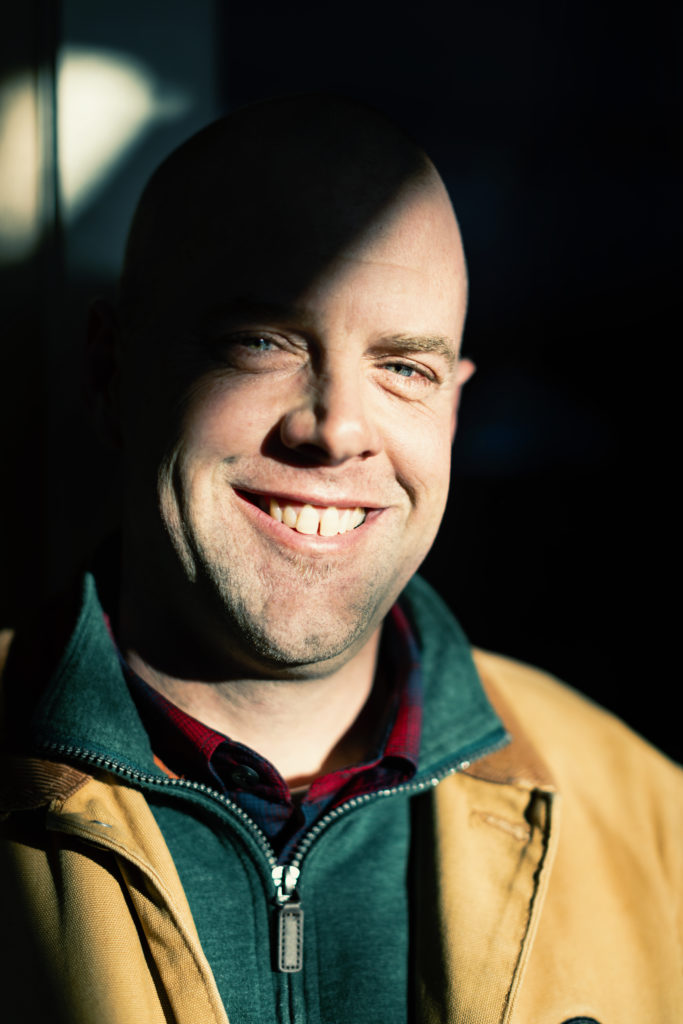
Ted Woodard, Executive Director
Ted, the executive director, tells the story of a young man whose relapse into drug use meant he had to leave Dale House. When Ted and another staff member picked the young man up at his workplace to take him back to jail, they allowed him to explain the situation to his boss, giving him the dignity of leaving his job well—something he had never done before. After finishing his jail time, he returned to Dale House, and left with his court-ordered restitution paid, $2,000 saved, and his relationship with his mom restored.
This same ethos of communal accountability infuses the way the Dale House staff and the board operate. “We have times of training, times of sharing, and times for confronting,” Jim says. “In the tough times, we try to handle it as a family.”
The staff, known as primary care workers, are recent college graduates who serve for a year as they prepare for careers in such fields as chaplaincy, social work, and education. Many have gone on to study at Fuller through a partnership arrangement with the seminary. “What I wanted to do was train counselors who would live in this setting and become role models,” Jim says, “but also who were clinically trained and theologically sound. What I really enjoy is the people who come and are being trained by us to go out and do likewise.”
The staff work with referring agencies, teachers, probation officers, and court-appointed guardians. But they are also responsible for leading devotionals, speaking at the Sunday “family night,” and modeling Christlike behavior. “We’re talking about incarnational ministry,” Jim explains. “We use it in action, not only in theological language.”
That ministry also involves caring for the staff, who can feel overwhelmed by the stress of dealing with behavioral challenges, and the long shifts required for supervising their assigned residents 24 hours a day. If they need extra time off or counseling, they get it, Jim says.
Initially, Dale House dealt mostly with drug issues, but as the culture has changed, the severity of the problems has increased dramatically. A few years ago, shots were fired into the facility in a drive-by incident. The executive director eventually learned the identity of the shooter, and reached out to him while he was in custody. “It’s gone from light street work to very serious social work” involving young people coming out of incarceration, Jim says. Some have been involved with gangs. Most are referred by the Department of Human Services and the Division of Youth Services, which provides for the care of youths committed by the courts. But the intense issues they bring haven’t diminished his empathy for them.
The problems of abuse, neglect, and trauma aren’t new. “It’s always been difficult for some kids growing up,” Jim says. But now, “from junior high on up, it has become much more pressure packed.” Technology often exacerbates the problems. Kids who lack strong family support become attracted to unhealthy relationships, as they always have. Now, Jim notes, computers and smartphones have given young people easy access to a dark and destructive side of the culture, including increasingly violent content. Bullying, both online and in person, has intensified. “It’s pretty difficult for kids to even believe they’re likeable,” Jim says. But the Dale House team has a different perception: “We see them as young people who were given to us by God.”
The concept of relational healing has informed other aspects of Jim’s work and personal life. He developed and served as cochair of the Colorado Psychological Association’s Colleague Assistance Program (CAP), designed to support psychologists in distress as the result of personal, financial, or professional problems, such as a client filing a complaint with the state licensing board. He also chaired the American Psychological Association’s Advisory Committee on Colleague Assistance. Even in that context, he focused on providing good relational care as well as good advice. He described the beginning of the consultation process in a 2007 interview with the APA Monitor on Psychology: “Oftentimes, we’ll meet in a coffee shop and just start talking. The first interview is to kind of quell their fears and assure them we have people who will stick with them,” he says.
He and his wife have belonged to one small group or another since their days in Pasadena, and he’s a big supporter of the small group model that many churches have adopted to encourage members to care for one another. He also meets with six of his former Fuller classmates every July in Southern California. They began calling themselves “the bucket boys” after one of them described the annual reunions as one of his “bucket list” items.
Jim’s heart, though, still reserves a special place for lost and discarded young people, just as it did more than four decades ago. There have been success stories, like the Dale House alumnus who became a successful businessman, and now hosts a barbecue for the staff and residents each year. But, Jim adds, “There have also been losses.”
One of his great joys is to see individual lives transformed as the community bears witness to the healing power of the gospel. Such change, he says, “is the movement of the Spirit.”
- Audrey Doak, Team Leader

